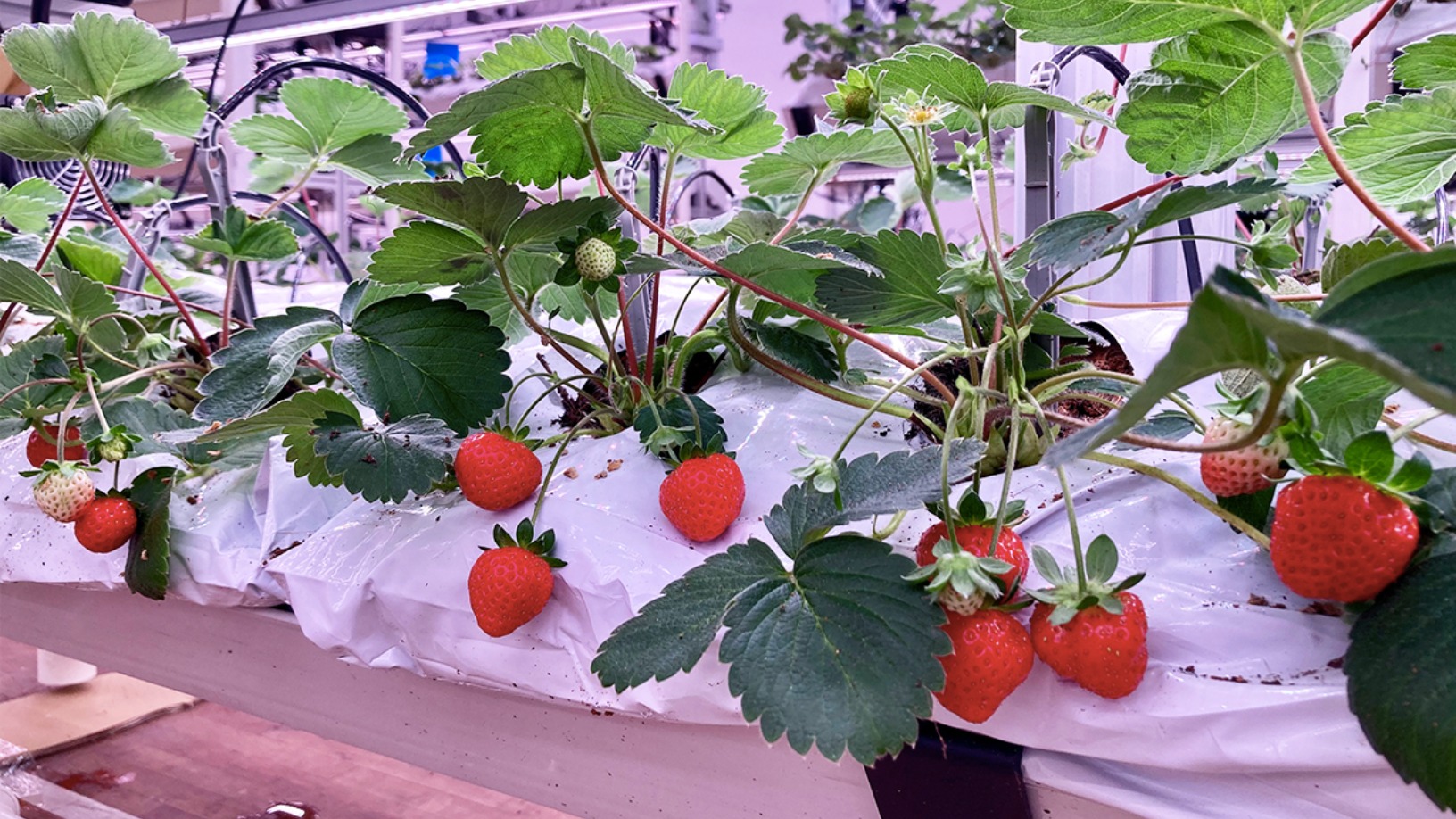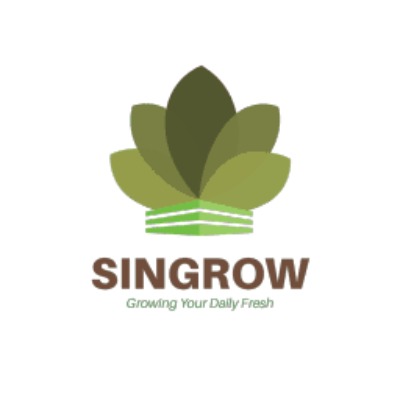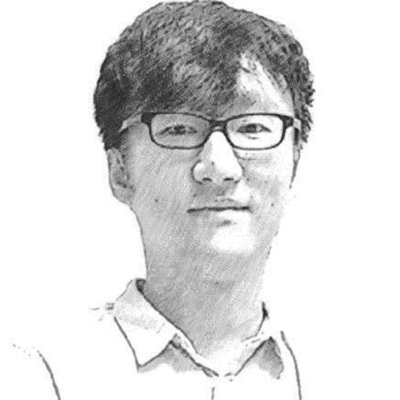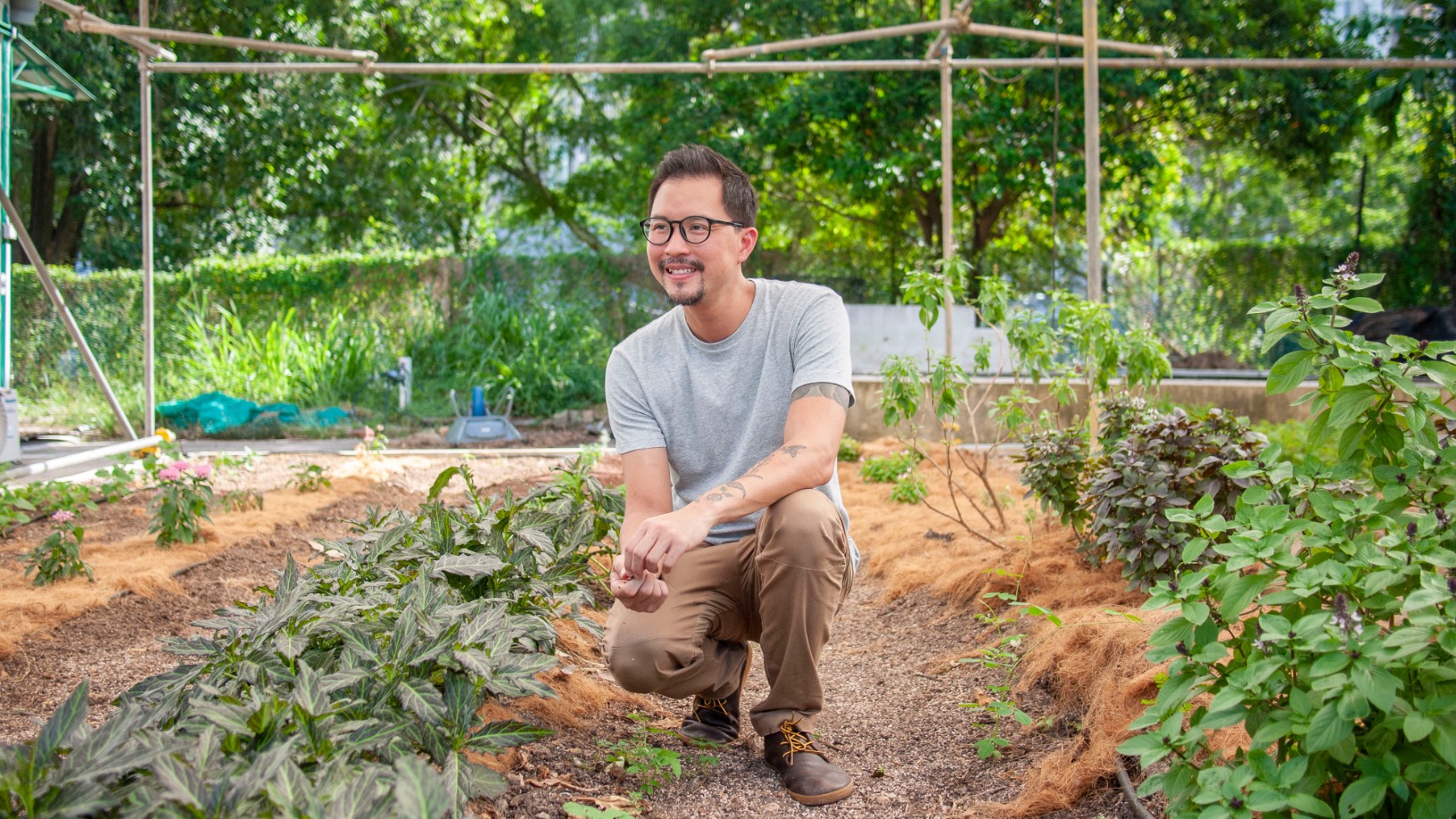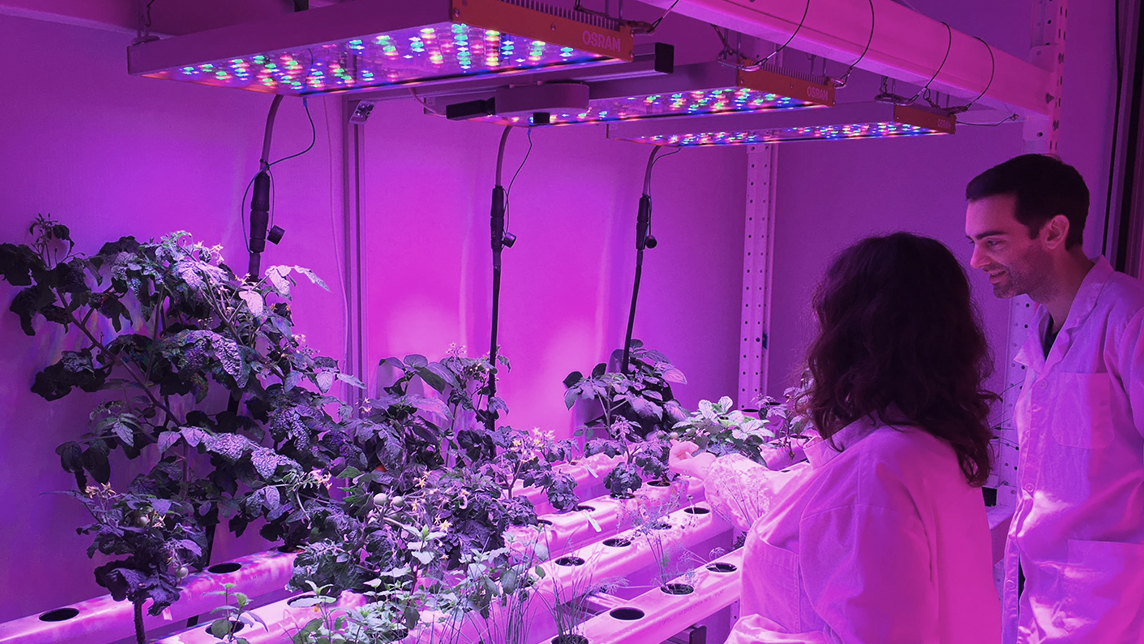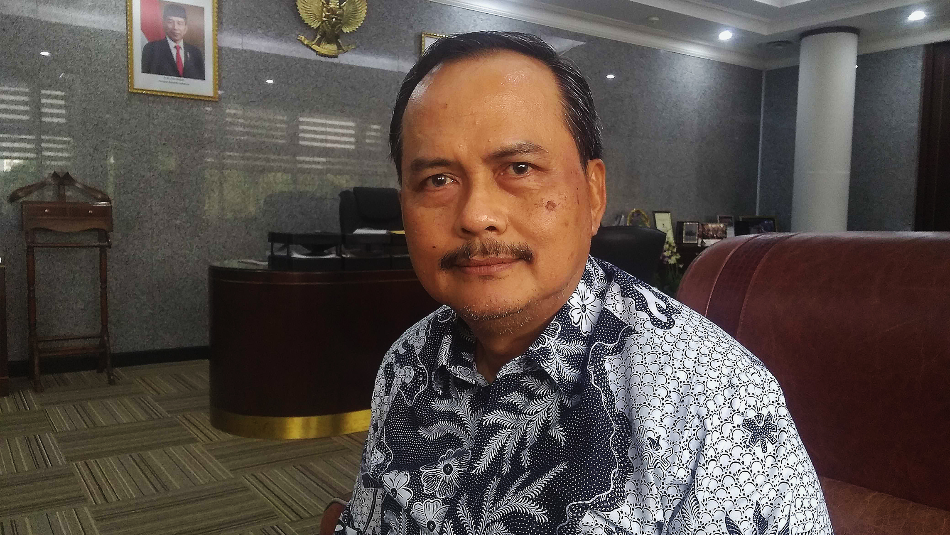It used to be unthinkable that strawberries could grow in a tropical climate like Singapore’s. A local agritech startup called Singrow has achieved that feat by developing its own varieties and using vertical farming techniques. It will yield its first batch of strawberries for sale soon, in March – all 300 kg of them.
“We actually harvested our first batch last December, but the strawberries were not for sale,” Bao Shengjie, CEO and co-founder of Singrow, told CompassList in an online interview. "It was our first scaleup, from lab to farm. We sent some to our investors and partners, and also some to the authorities for certification.”
Singrow also opens its farm to invited visitors and lets them sample its strawberries. “All of them were impressed by the smell and taste,” he said.
The strawberry varieties grown by Singrow take less than three and a half months to produce, from seedling to the first harvest, compared with five months in a conventional farm. The company is expecting six to eight harvests a year, meaning that for the first time, Singapore will get to enjoy locally grown strawberries all year round. The crop is cultivated in a vertical farm at the Sprout Hub, a repurposed sports hall in the old Henderson Secondary School.
Bao believes the commercial sale of its strawberries and an upcoming Singrow e-commerce platform will help the young startup raise new funding. “We will start raising a $15m Series A around mid-2021, by which time our e-commerce platform is officially launched and we will have one to two franchisees.”
Founded in March 2019, Singrow was part of the inaugural cohort of agritech startups accelerated by GROW, AgFunder’s joint venture with the Australian agrifood accelerator Rocket Seeder, in September 2019. The following year, it raised S$1.6m ($1.2m) in seed funding from investors including AgFunder and SEEDS Capital, Enterprise Singapore’s investment arm.
30 varieties of crop
Singrow will sell its March harvest via WeChat mini program, targeting Chinese nationals in Singapore who are used to the type of strawberries commonly grown in East Asia and which Singrow cultivates. Bao explained: “Chinese people prefer seasonal-bearing strawberries that are sweeter and softer, while the locals in Singapore are more used to day-neutral strawberries imported from Europe and the US.”
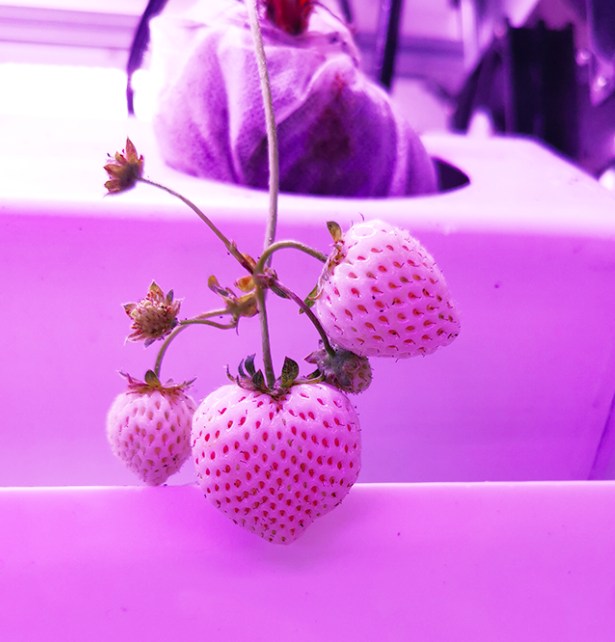
Growing up in Zhejiang province, China, Bao himself is a strawberry lover and began growing his own strawberries in Singapore in 2016 as a hobby. He obtained his PhD in biological sciences from the National University of Singapore (NUS) in 2017, and started Singrow two years later together with Xu Tao, a PhD candidate working on plant functional genomics at NUS.
Bao and his team spent three years developing the strawberry varieties, Crystal and Ruby, which Singrow now offers, as well as new varieties for other crops, such as cherry tomato and saffron.
Singrow now has about 30 varieties of crops, all of which are non-genetically modified and developed with targeted breeding method, in its pipeline waiting to be commercialized.
“That’s why we won’t face any regulatory restrictions during go-to-market,” Bao said.
“We started with strawberries because of market demand.” According to Bao, the wholesale market of strawberries in Singapore is worth about $40m a year.
“One of our partners is selling 1.5 tons of strawberries a week via its WeChat mini program,” he said. “Our current production is around 6 tons annually – only a drop in the bucket.”
Targets premium buyers
Unlike climacteric fruits like mangoes and bananas that can ripen after being picked, strawberries will lose their flavor and sweetness once picked. Hence strawberries are best harvested only when they fully mature.
But strawberries imported from Europe or the US usually take five to seven days to reach the shelves in Singapore. “That means they must be picked before they are 70% ripe,” Bao said, “whereas we pick our strawberries the morning after customers place their orders, and deliver them to their doorstep before evening time. [Imported strawberries] can’t compete with ours in terms of taste, sweetness and freshness.”
Singrow targets buyers of the more expensive strawberries imported from Japan and South Korea. It aims to build a “premium, but not that luxurious” brand image, and so will price its strawberries lower to compete against the imports.
Our current production is 6 tons annually – only a drop in the bucket
Singrow’s urban farming is especially important for Singapore, which imports over 90% of its food. In order to boost food security, in 2019 Singapore made it a national priority. Named the “30 by 30” goal, Singapore targets producing 30% of its food needs by 2030. This includes fostering a local agritech sector, and pumping in funds to support local agriculture and aquaculture companies.
“Singrow, as a tech solution provider, has helped a local vegetable farm get such support,” Bao said.
Energy-efficient, smart farming
Singrow obtained the strawberry varieties from cross-breeding, adapting them to the tropical weather. As such, Singrow hardly needed to use air conditioning in its vertical farm while growing the first batch, and still the plants blossomed and yielded fruit at temperatures of 28–30℃. But the fruits were also a little small and soft, meaning they were more susceptible to spoilage, Bao admitted.
“The factors include temperature and humidity control,” he said. “Ever since, we have already fine-tuned the climate control system, bringing the temperature down to 25℃.”
Even so, Singrow remains more energy efficient than most other indoor farms in Singapore that use air conditioning to keep the temperature at 18–22℃, he said.
Indoor farming uses LED grow lights as its main lighting source. In lighting efficiency, Singrow too has been able to better other local farms by using proprietary LED lights it developed with a partner – something Bao proudly noted.
The startup is also developing other technologies for its farm with partners. One example is robotic arms, developed using the code-free robotic automation platform of Augmentus, another Singapore startup. Singrow is trying them out for pollination and harvesting, departing from the use of UV light by some indoor farms to guide honeybees for pollination.
“In the early stage, the robotic arm might not be able to compete against existing options in cost and efficiency, but it’s our long-term direction,” Bao said. "Using bees indoors involves cumbersome day-to-day maintenance.” Singrow has already built the prototype of the robotic arm, which will be further optimized to lower its cost.
At the same time, Singrow had developed its strawberry varieties to be more efficient in self-pollination, hence needing “very little” external intervention. Besides using small air blowers to produce wind as a pollinating agent, the startup is also developing with a partner computer vision-powered pollination devices, which can be used for other high-yielding crops requiring more assistance in pollination.
Singrow is also building a system of IoT sensors to collect data generated in the farm and to analyze quality and yields in real time, which in turn helps predict and optimize the final yields.
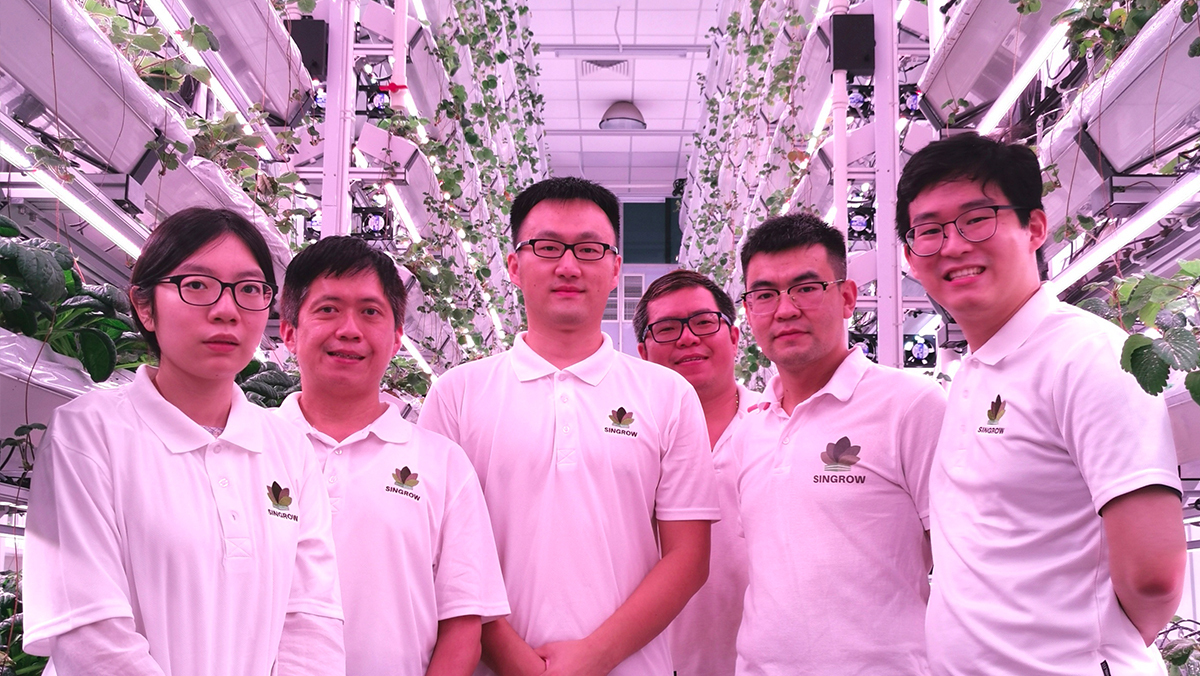
Southeast Asia expansion
Singrow plans to grow its business across Southeast Asia through franchising, instead of planting more strawberries in its own farm. “We will provide a standardized solution to clients, helping them design and build farms and offer them seedlings and corresponding planting programs," Bao said.
The franchisees won’t have to pay for technology transfer, while Singrow will only charge them for the seedlings and devices used in the farms, which will be sold at cost. At the end of the cycle, the startup will buy back all the harvests from its franchisees, setting a minimum price to guarantee a profit margin for the franchising farms.
There are also plans to expand to China, but with a different approach: “We will consider self-run or self-invested farms, or cooperating with local partners to build large farms for better quality control and lower cost.”
Singrow already has its first franchisee, in Indonesia, whom it will help to build a farm in the coming months. The farm is located in Batam, the closest Indonesian island to Singapore, around 31 kilometers south of the city state. Because of the close proximity, the harvests of the Indonesian franchisee, currently consisting of only strawberries, are expected to be sold in Singapore, Bao said. The model will extend to other crops down the road.
E-commerce ambition
In fact, Singrow is aiming for something even bigger. It wants to build an e-commerce app, targeting different local markets in Southeast Asia. “It will work to shorten the supply chain through local production and consumption,” Bao said. “We won’t import the harvests grown in the farms of our franchisees [except the first] back to Singapore or resell them to other markets.”
Rather, the company will sell all the repurchased produce via its own platform under the Singrow brand. “Such a model ensures better quality control and helps build a brand image.”
Singrow will widen its product range in six months, introducing more crops suitable for indoor farming, from leafy vegetables to tomatoes and mushrooms. “Our final goal is to build an online supermarket to sell fresh produce, providing customers with locally grown products that can be delivered to their doorsteps within hours.”
